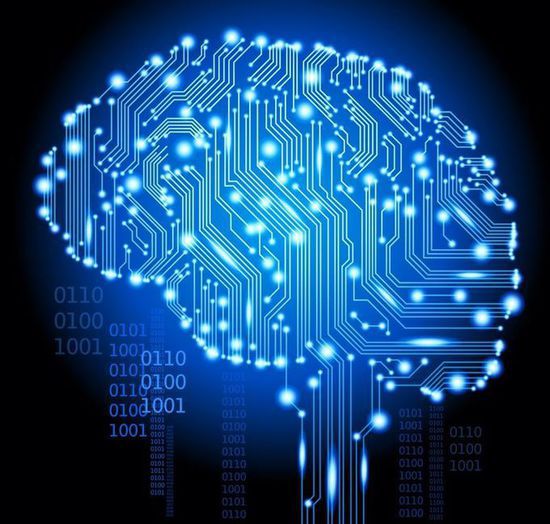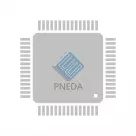Why does AI need a new chip architecture

Artificial intelligence refers to the field of technology and application in which machines learn, reason, judge and make decisions by simulating human intelligence. With the continuous development and application of artificial intelligence, the requirements for chip architecture are becoming higher and higher. From the following aspects to explore why artificial intelligence needs a new chip architecture.
1, High performance computing requirements: AI tasks usually require a lot of computing resources, such as neural network training and reasoning processes in deep learning. Traditional general-purpose processors, such as cpus, are less efficient at handling these compute-intensive tasks, so new chip architectures are needed to deliver higher computing performance. The new generation of AI chips, such as graphics processors (Gpus) and dedicated AI chips (such as Google's TPU, NVIDIA's Tensor Core, etc.), have more parallel computing units and specialized hardware accelerators, which can provide higher computing performance.
2, Low power consumption and high energy efficiency requirements: AI applications usually need to run for a long time, and have high requirements for power consumption and energy efficiency. Conventional general-purpose processors generate a lot of heat under high loads, resulting in high power consumption. The new AI chips can achieve better power consumption and energy efficiency performance under the same computing tasks by optimizing the architecture and adopting energy-saving technologies.
3. Massively parallel computing needs: Massively parallel computing in artificial intelligence tasks is an important means to improve computing efficiency. Traditional general-purpose processors are limited by architecture and memory bandwidth when processing parallel computing, which makes it difficult to give full play to their performance. By adding parallel computing units and optimizing memory access, the new AI chip can better support large-scale parallel computing and improve computing efficiency.
4, Specific hardware requirements: AI tasks often require specific types of hardware support, such as floating point calculations, matrix multiplication and vector operations. Traditional general-purpose processors are not optimized for these specific needs and therefore do not provide efficient computing performance. New AI chips are better able to meet the specific hardware needs of AI tasks by adding specialized hardware accelerators and optimizing instruction sets.
5, Real-time computing needs: Some tasks in AI applications require real-time computing power, such as perception and decision-making in autonomous driving. Traditional general-purpose processors have great limitations in real-time computing and cannot meet the real-time requirements. By optimizing the architecture and adding dedicated hardware, the new AI chip can provide better real-time computing power to meet the needs of real-time applications.
To sum up, AI needs new chip architectures mainly to provide higher computing performance, lower power consumption and high energy efficiency, better parallel computing support, to meet specific hardware requirements, and to provide real-time computing power. By optimizing the architecture, increasing hardware accelerators and specialized hardware support, new AI chips can better meet the needs of artificial intelligence applications and promote the development and application of artificial intelligence technology.
Die Produkte, an denen Sie interessiert sein könnten
 |
3103 | JOYSTICK 10K OHM 2 AXIS PNL MT | 3618 More on Order |
 |
3845 | 3X4 MATRIX KEYPAD | 7542 More on Order |
 |
3105 | PUSHBUTTON BLUE POWER SYMBOL MOM | 4932 More on Order |
 |
475 | SWITCH PUSHBUTTON SPST-NO GRN | 5400 More on Order |
 |
3491 | SWITCH PUSH SPST-NO WHT 10MA 5V | 8184 More on Order |
 |
2831 | SENSOR PHOTO TOP VIEW RADIAL | 5004 More on Order |
 |
3397 | OPTOMAX DIGITAL LIQUID LEVEL SEN | 6324 More on Order |
 |
952 | WIRE EL FLOW EFFECT INV GREEN 2M | 8820 More on Order |
 |
2432 | DOTSTAR LED STRIP - ADDRESSABLE | 8244 More on Order |
 |
2734 | ADDRESS LED MATRIX SERIAL RGB | 2106 More on Order |
 |
1734 | ADDRESS LED NEOPIXEL DIFF 8MM TH | 4914 More on Order |
 |
2561 | ADDRESS LED STRIP SERIAL RGB 1M | 7020 More on Order |
 |
3851 | LED STRIP WITH 32 LED/M - WHITE | 4050 More on Order |
 |
3636 | ADDRESS LED STRIP 1M | 6048 More on Order |
 |
1080 | ADDRESS LED MATRIX I2C WHITE | 5328 More on Order |
 |
3631 | ADDRESS LED STRIP RGBW | 5328 More on Order |
 |
3630 | ADDRESS LED STRIP RGBW | 5850 More on Order |
 |
2846 | ADDRESS LED STRIP SERIAL RGBW 1M | 6948 More on Order |
 |
2862 | ADDRESS LED RING SERIAL RGBW | 8208 More on Order |
 |
1676 | TOUCH SCREEN RESISTIVE 7"" | 4896 More on Order |
 |
2478 | 2.4"" TFT LCD WITH TOUCHSCREEN | 2898 More on Order |
 |
4243 | 2.13"" FLEXIBLE MONOCHROME EINK / | 7866 More on Order |
 |
398 | RGB BACKLIGHT POSITIVE LCD | 7146 More on Order |
 |
865 | RED 7-SEGMENT CLOCK DISPLAY | 8262 More on Order |









